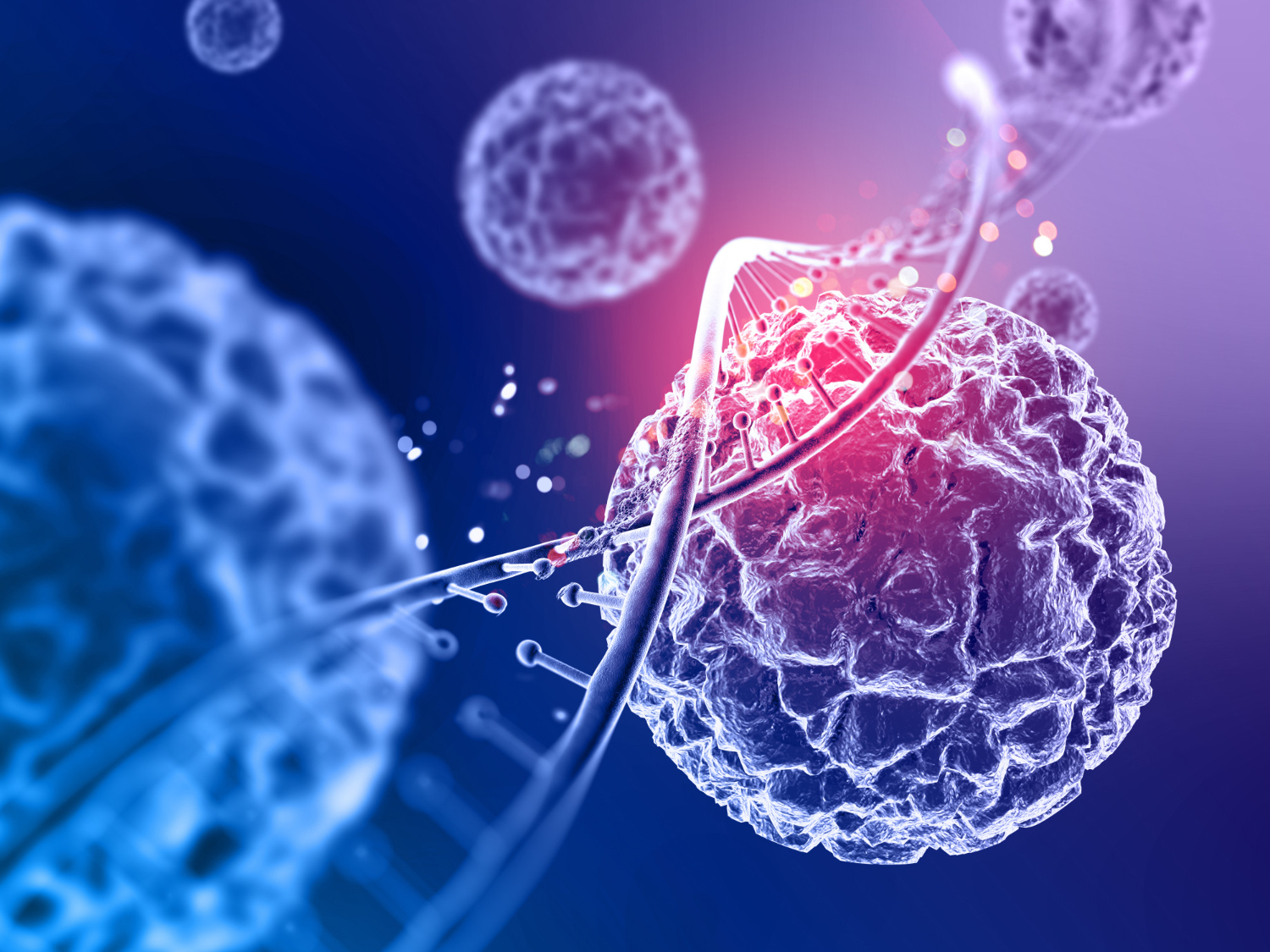REPURPOSING
old drug treats new target for colon cancer
REPURPOSING
Un vecchio farmaco per un nuovo target nel tumore del colon-retto


Immaginatevi una malattia molto diffusa, anche mortale in molti casi, ma con ancora pochi farmaci efficaci per combatterla. Poi però scoprite che ha qualcosa in comune con altre malattie per le quali esistono già farmaci efficaci e quegli stessi farmaci potrebbero essere usati anche per quella malattia. Che sollievo sarebbe!
Ebbene, ottime speranze arrivano dai ricercatori dell’Università di Bologna sul fronte del tumore al colon-retto con un possibile nuovo target terapeutico già noto in altre patologie tumorali.
Il tumore al colon-retto rappresenta uno dei tumori più diffusi nell’uomo, venendo dopo solo al cancro al seno e a quello ai polmoni. Data la sua elevata diffusione, molti scienziati hanno concentrato i loro sforzi per studiarlo, il tutto per poter trovare un buon target terapeutico per combatterlo, ovvero una qualche caratteristica unica della cellula tumorale (non presente nelle cellule sane) verso cui indirizzare un farmaco specifico. Sfortunatamente, al momento, sono ancora pochi i farmaci disponibili al trattamento del tumore colon-rettale.
Possiamo suddividere il cancro al colon-retto in 4 sottotipi: CMS1, CMS2, CMS3 e CMS4. Questi 4 sottotipi presentano meccanismi di formazione e sviluppo del tumore differenti, per cui l’ideale sarebbe trovare dei farmaci specifici per il singolo sottotipo, in modo da avere una terapia più mirata ed efficace.
I ricercatori dell’Università di Bologna hanno indagato un attore particolare noto come ALK (dall’inglese Anaplastic Lymphoma Kinase, ovvero Chinasi del Linfoma Anaplastico). Si tratta di una proteina che si trova di solito sulla superficie delle cellule del sistema nervoso. Normalmente, negli adulti la proteina ALK è poco presente, ma è stata ritrovata in grandi quantità e con un ruolo cruciale in alcuni tumori, come nel neuroblastoma e nel cancro ai polmoni non a piccole cellule. Per via del suo ruolo cruciale nelle cellule tumorali e per la sua minima presenza nelle cellule sane, ALK è stata utilizzata come target terapeutico in questi tumori, per i quali esistono già dei farmaci approvati (anche se non per il trattamento del tumore colon-rettale).
Gli studiosi dell’Università bolognese hanno quindi analizzato campioni cellulari appartenenti ai 4 sottotipi del tumore colon-rettale. Come si aspettavano, hanno trovato che la proteina ALK è presente in grandi quantità anche nel tumore del colon-retto, ma soltanto nel caso del sottotipo CMS1. Inoltre, hanno osservato che la proteina ALK è strettamente legata ai meccanismi di formazione e sviluppo del tumore colon-rettale CMS1.
Questi primi risultati hanno fatto quindi ipotizzare ai ricercatori bolognesi che nel caso del sottotipo CMS1 possa essere possibile l’utilizzo di farmaci diretti contro la proteina ALK. Di conseguenza, gli hanno testato alcuni di questi farmaci, in particolare il Crizotinib e l’Alectinib, due farmaci approvati per il cancro al polmone non a piccole cellule. I risultati ottenuti sono stati molto incoraggianti. Infatti, sia su test in vitro che su modello animale, questi farmaci hanno avuto degli effetti anti-tumorali verso le cellule del cancro colon-rettale CMS1, consistenti principalmente nell’induzione della morte delle cellule tumorali.
In conclusione, questo studio dell’Università’ di Bologna ha fatto luce sulla proteina ALK come nuovo target terapeutico per il sottotipo CMS1 del tumore colon-rettale, gettando le basi per lo studio di una terapia più mirata e funzionale. Inoltre, siccome esistono già dei farmaci diretti contro la proteina ALK ma approvati per altri tumori, i tempi per la loro sperimentazione clinica per il trattamento del sottotipo CMS1 del tumore colon-rettale potrebbero essere notevolmente ridotti.
Autore del post: Rita Chiarelli
Istituto di appartenenza: Al momento non lavoro per nessun itistuto (in cerca di lavoro/affiliazione).
Ruolo: Press Officer - Brains in Italy
Doi originale: https://doi.org/10.1186/s13046-022-02309-1
Link diretto alla fonte: https://jeccr.biomedcentral.com/articles/10.1186/s13046-022-02309-1
Articolo Divulgativo in Inglese:
Imagine a vastly diffuse disease, also mortal in some cases, but with only a few pharmaceutical drugs available to fight it. Suddenly, you discover that it has something in common with other diseases for which effective medications exist and that it's possible to use those medications for that vastly diffuse disease. How wonderful it would be! Great news comes from the University of Bologna about colorectal cancer and a possible novel therapeutic target known for other cancer diseases. Colon cancer represents one of the most diffused cancers in humans, coming after only breast and lung cancers. Due to its high diffusion, many scientists study it with the scope to find an optimal therapeutic target, which means finding a peculiar characteristic of the cancer cell (but not present in healthy cells) against which to formulate a pharmaceutical drug. Unfortunately, today only a few medicines are available for colon-rectal cancer. We can divide colon cancer into four subtypes: CMS1, CMS2, CMS3, and CMS4. These four subtypes present different tumour formation and development mechanisms. Therefore, it's ideal to find specific medications for any subtype to have a personalized and effective therapy. Researchers from the University of Bologna have studied an already known actor, ALK - Anaplastic Lymphoma Kinase. It's a protein generally present on the surface of nervous system cells. Generally, ALK protein is present in low quantity in adults, but it was found in high quantity and with a critical role in some types of tumours, like neuroblastoma and Non-Small Cell Lung Cancer. Since its crucial role in the tumour cells and minimal presence in healthy cells, ALK has been used as a therapeutic target in these tumours for which there are some already-approved drug treatments (but not for colon cancer). Therefore, researchers studied cellular samples from the four colon-cancer sub-groups. They did find that the ALK protein is present in high quantity in colon-rectal cancer, but only in the CMS1 subtype. In addition, they observed that ALK protein is tightly involved in the formation and developing mechanisms of the CMS1 colon cancer. Due to these first results, researchers hypothesized that the CMS1 subtype might be treated using pharmaceutical drugs against the ALK protein. Consequently, they tested a couple of these medications, the Crizotinib and the Alectinib, both approved to treat the Non-Small Cell Lung Cancer. The results were encouraging. Both in vitro tests and animal models showed that these medications acted as anti-tumour, mainly inducing the death of the cancer cells. In conclusion, this study from the University of Bologna has shown the protein ALK as a novel therapeutic target for CMS1 colon cancer, giving the basis for more personalized and effective therapy. Moreover, since medications against the ALK protein already exist for other cancers, they might be tested and approved for CMS1 colon cancer with reduced-in-time clinical trials.



